How and what to fertilize lemons at home

Lemon is one of the most common indoor citrus fruits. Growing a fruit-bearing lemon tree is the dream of many gardeners. Buy a small one seedling this crop is not a problem, but growing a fully developed plant from it is much more difficult. Timely and correct feeding plays an important role in this.
Content
Signs of lack of batteries
The development of indoor lemon occurs in a limited volume of soil mixture, so the size of its root system is approximately 30-40 times smaller than that of a specimen growing in open ground. It is the houseplant that needs regular fertilization.
The lack of certain batteries can be determined by the following signs:
- Nitrogen. The main signs of nitrogen starvation are pale leaf color, underdeveloped young shoots and severe stunting.
- Phosphorus. First of all, its deficiency affects flowering and fruiting. It may be sporadic or absent altogether. Also, the plant’s leaves may turn black and fall off, and ugly fruits may develop.
- Potassium. The deficiency of this element is expressed in weakened development, the leaves begin to lighten first from the edges, then chlorosis gradually spreads to the interveinal space. The fruits ripen for a very long time and become soft.
- Calcium.Its deficiency very often affects the development of the root system. Also, with calcium deficiency, the tips of young shoots die off.
In addition to the deficiency of basic nutrients in lemon There may also be a lack of microelements. Most often he suffers from iron deficiency chlorosis. It is expressed in the appearance of light areas in the interveinal space of the leaves. Then the damaged tissues die and the leaves themselves fall off.
Main types of fertilizers
All fertilizers used to feed indoor lemons can be divided into two groups. The first is mineral fertilizers and complexes, the second is organic.
Mineral fertilizers
Ammonium nitrate can be used as a mineral fertilizer to feed lemons. It effectively eliminates nitrogen starvation. It should be diluted to a half percent solution.
Very often it is supplemented with potassium salt. Of the phosphorus fertilizers for fertilizing, it is best to use superphosphate. It is quite difficult to dissolve it in water. He is fertilizer long-acting. Therefore, you can simply take a small amount of granules and carefully embed them into the surface layer of soil.
Also, during the period of intensive growth from March to August, complex mineral fertilizers can be used for fertilizing. In this case, it is best to choose those that are intended for indoor citrus crops.
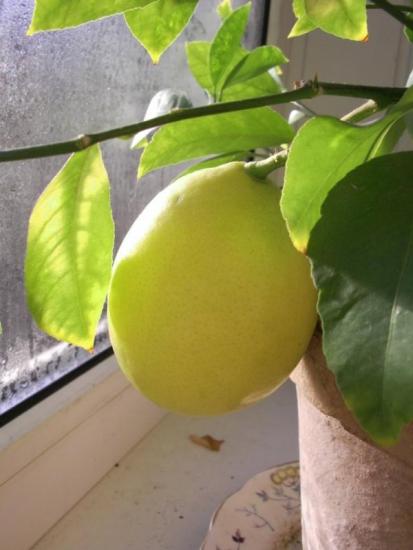
Organic fertilizers
Lemon very responsive to the addition of organic matter. However, moderation should also be observed in this matter. An excess is no less harmful than a deficiency. Among organic fertilizers, fermented mullein or diluted bird droppings are most often used to feed lemons.
To prepare a mullein solution, fresh manure is poured with water and left for further fermentation for a week and a half. After which the resulting infusion is diluted with water in the ratio of 1 part mullein to 10 parts water.
To make it more effective, a small amount of potassium salt and a few granules of superphosphate are added to the solution. You can also use chicken or pigeon droppings to fertilize lemon.
To prepare a working solution, 1 kg of raw litter is diluted with 10 liters of water. If the droppings are dry, then the proportion changes slightly; 0.5 kg is added per 10 liters of water. litter. The prepared solution should be used immediately. If this requirement is not met, most of the nitrogen will evaporate.
Fertilizer application scheme for lemon
The fertilization scheme for indoor lemon is quite simple. All fertilizing is applied during the period of intensive crop growth from March to September. There is no point in fertilizing lemon during the dormant period.
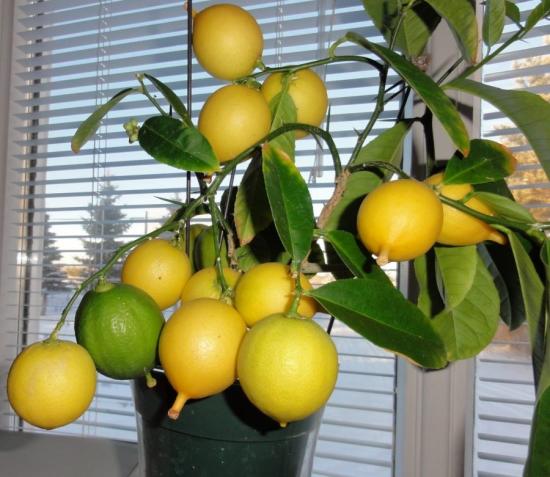
Fertilizers are applied for the first time in early March, at which point nitrogen fertilizers are most often used. Then, once every two weeks, the lemon can be fed with a special liquid fertilizer for indoor citrus fruits. In most cases, it contains not only basic nutrients, but also microelements necessary for the plant.
Use fertilizers with caution during various diseases and injuries. At this point, feeding will do more harm than good. If there is no opportunity to purchase specialized fertilizers, you can use traditional methods. For example, dormant tea leaves very good results.
Properly fertilize lemon at home not difficult at all.You just need to carefully monitor the condition of the tree and promptly eliminate the lack of certain nutrients. And then your lemon will definitely thank you with abundant flowering and produce many fragrant and healthy fruits.
Video on how to grow lemons yourself:

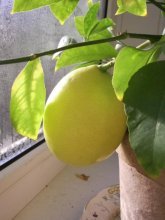
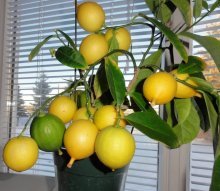
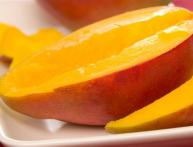
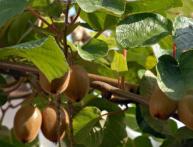
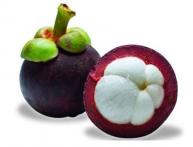
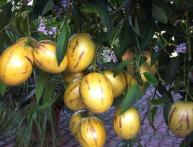
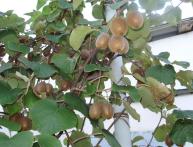

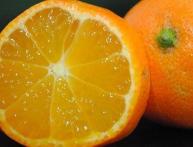
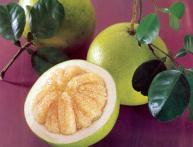
Comments
I experimented with many types of fertilizer, but the lemons grown on the window still turn out small, green and very sour. Most likely it's just a lack of lighting. But it is quite a suitable option for adding to tea.